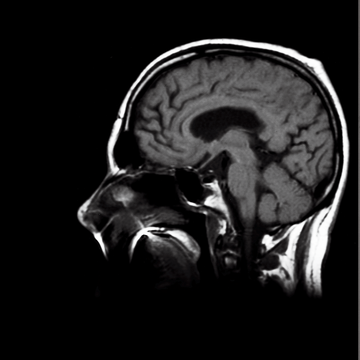TRAUMA IS AN EMOTIONAL response that occurs when you experience a distressing event, which can range from being excluded by a parent to being assaulted, losing a loved one, or dealing with a life-threatening illness. It can cause long-term issues, including anxiety, physical pain, and strained relationships.
Sometimes, trauma gets passed down through families. You might not have experienced a traumatic event yourself, but you may still be dealing with the consequences, including “adverse emotional and behavioral reactions,” according to the American Psychological Association (APA).
This is known as generational trauma, or intergenerational trauma.
“It’s more than just family heirlooms that get passed down,” says psychotherapist Chase Cassine, L.C.S.W. “It’s psychological things, too.”
People born into families with generational trauma might struggle with relationships, their sense of self, communication, and their overall mental health and well-being, he adds.
While trauma “doesn’t cherry pick,” Cassine says—it can affect everyone—people from marginalized communities are typically most at risk for generational trauma.
Early research on this subject focused on the children, grandchildren, and great-grandchildren of survivors of the Holocaust and the Japanese American internment camps, according to the APA. More recent studies have examined the role of generational trauma in the Black community and among people who’ve grown up in poverty.
Recently, the topic of generational trauma has come up in conversations revolving around affluent figures, including Prince Harry and Alex Murdaugh, who was convicted of murdering his wife and son in South Carolina.
Generational trauma isn’t a diagnosable mental health disorder, but it can nonetheless manifest in many different ways and affect individuals and families as a whole. Therapists explain how to recognize the signs of generational trauma and when to seek treatment.
What Is Generational Trauma?
Trauma refers to stress that’s so overwhelming and severe that it impacts your emotional, mental, physical, spiritual, and other parts of your well-being, says psychologist Bertrina Olivia West Al-Mahdi, Ph.D.
“Trauma is individualistic and is not confined by ethnicity or socioeconomic status. Therefore, anyone can experience generational trauma,” she says. “Generational trauma can be defined as trauma or traumatic experiences passed from generation to generation.”
The concept of generational trauma was first recognized in 1966, when psychiatrist Vivian M. Rakoff noted high rates of psychological distress among children of Holocaust survivors. This group has been the most studied regarding generational trauma, but any instances of extreme and prolonged stress could affect children and grandchildren, causing anxiety, depression, or post-traumatic stress disorder (PTSD).
Who Does Generational Trauma Affect?
Anyone can inherit trauma, but marginalized groups are often more likely to experience it based on historical events, like slavery or the Holocaust. Cassine says it can also stem from generations of families experiencing institutional racism, classism, or discrimination.
“All of these events or occurrences experienced by our ancestors can be stored within our bodies and passed down to future generations through epigenetics,” which is the study of how your behavior and environment can change how your genes work, Al-Mahdi explains.
Research suggests that there could be an “intergenerational transmission” of depression among Black Americans due to structural racism, which might account for the group having a more persistent illness from the disorder. And there's a research review that showed evidence that children might be affected by parental trauma that happened before they were born or even conceived.
Environmental factors like poverty, where people normalize and adapt to situations for survival, might have a traumatic impact that gets passed down, Al-Mahdi says. This might include growing up eating unhealthy food because it’s more affordable, or having to look after younger siblings because your single parent couldn’t afford childcare.
Generational trauma can affect people from wealthy or prominent families, too. For instance, you might grow up with “survival techniques” to hoard money in fear of another Great Depression, so you inherit frugal or overindulgent spending habits, Al-Mahdi says.
Another example, she said, is if your parents discriminate against others, you might experience generational trauma when you grow up to embrace different non-discriminatory values.
How Does Generational Trauma Manifest?
Generational trauma can affect people in different ways. A common issue, Al-Mahdi says, is repeating patterns of past generations—such as having a well-paying job, but living above your means because the ability to budget wasn’t passed down.
Other signs of generational trauma can include:
- Dissociation, or a sense of detachment or disconnection from your body
- Difficulty expressing or experiencing emotions
- Not connecting with others or forming relationships
- Isolation
- Feelings of shame, guilt, helplessness, or vulnerability
- Trouble regulating moods
- Intrusive thoughts
- Hypervigilance
- Heightened stress response
- Substance abuse
- Stress, anxiety, and depression
- Feeling overwhelmed or inadequate
- Fear or feeling unsafe
- Post-traumatic stress disorder (PTSD)
- Loss of a sense of self
- Sleep disturbances
- Relationship problems
How Is Generational Trauma Treated?
Generational trauma isn’t a diagnosable condition listed in the Diagnostic and Statistical Manual of Mental Disorders (DSM-5). Still, you should seek treatment if you have anxiety or other symptoms that affect your daily life.
“Generational trauma may affect one's day-to-day life by causing symptoms of depression, anxiety, stress, and other trauma-related symptoms,” Al-Mahdi says. “One may often feel overwhelmed or inadequate due to daily life stressors.”
Treatment starts with acknowledging what caused the trauma, and how it has negatively affected you and others in your family, Cassine says.
For example, he says someone who was sexually abused as a child might grow up to have poor boundaries, struggle to navigate conflict, or become overprotective or hypervigilant with their own children, which could cause problems for them down the road.
Working with a mental health professional can help you work through generational trauma by helping you learn to change your habits or lifestyles. Al-Mahdi says treatment can help you develop coping skills and learn to replace outdated or unwanted behaviors.















